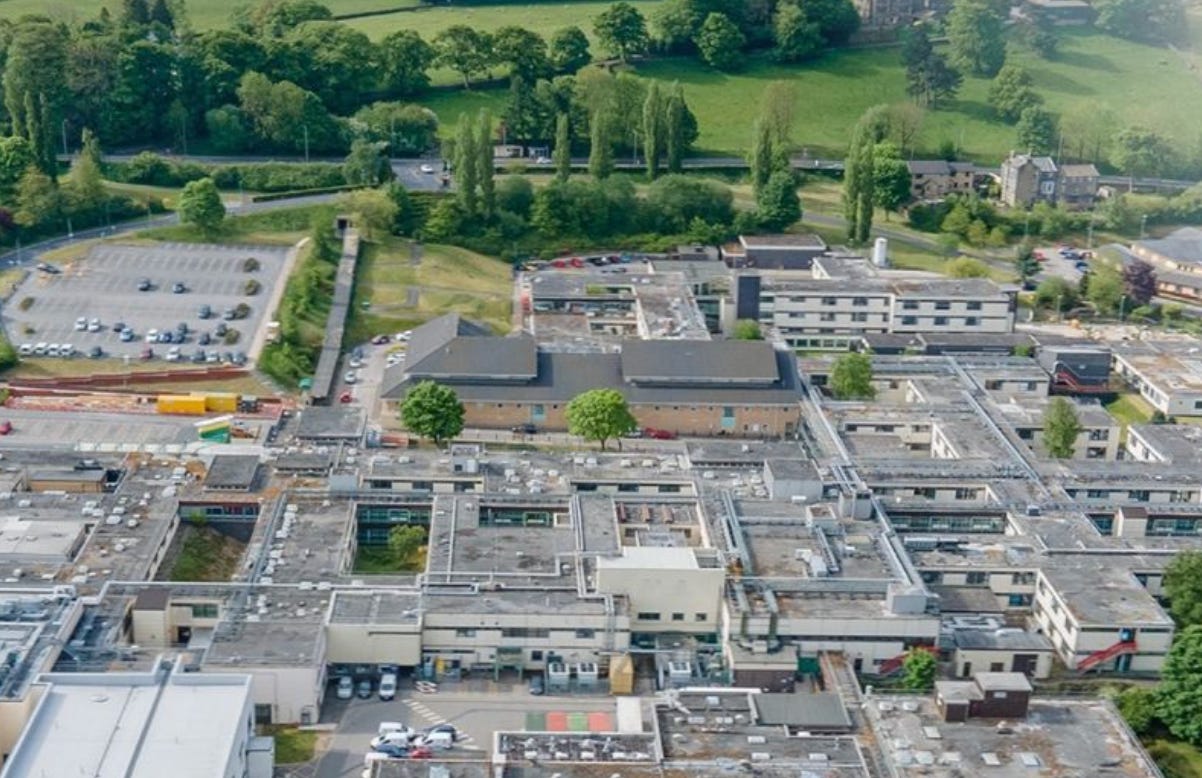New Hospital Programme: quick funding explainer
Confused? So were we. Here's a little clarity about funding and what this may mean for the full rebuild Airedale Hospital
There is a lot of confusion over the funding of the New Hospital Programme (NHP), which affects Airedale Hospital, one of 40 hospitals on the initiative. Here’s a bit of clarity.
Currently, only £3.7 billion has actually been allocated up to 24/25 – not £20 billion. The latter figure refers to how much investment the former government expected would be needed for new hospital infrastructure.
Expected – not guaranteed. It made this announcement in the spring of 2023. A media factsheet at the time explained that the investment was “part of a multi-year capital settlement where further funding will be set out in future spending reviews in the usual way”.
“All schemes within the New Hospital Programme [will] follow a business case process, including being reviewed and agreed by ministers,” the factsheet noted.
“Final individual allocations for schemes will only be determined once the Full Business Cases have been reviewed and agreed.”
However, as the Committee of Public Accounts observed in a report later that year, that the £20 billion earmarked for the programme was wide off the mark – and that costs for it would more than likely be a lot more.
“The committee sees multiple affordability challenges which DHSC [Department of Health and Social Care] needs to grapple with, including the fact that changes to the assumptions underlying Hospital 2.0 [a new standardised hospital design] to make the design fit for purpose will likely increase costs,” it stated.
“There appears to be insufficient funding for DHSC to build all the hospitals it plans, and to an adequate size, by 2030 … Long experience suggests that many schemes in NHP will come in over budget. Schemes in NHP’s cohorts 1 and 2 have already seen forecast costs increase by 41%.
“Getting the standard design of future hospitals right may also have the effect of increasing estimated costs. Other factors such as high inflation, insufficient capacity in the construction industry, and the need for many more factories to manufacture modular units offsite could drive up costs further.”
The Department of Health and Social Care recently said that 19 of the hospitals on the NHP have yet to submit an outline business case. Airedale Hospital is, we understand, one of those hospitals.
Accordingly, the former Conservative government had not signed off on funding for Airedale Hospital, despite Robbie Moore, MP for Keighley and Ilkley – who has, it has to be said, actively campaigned for a new rebuild – claiming last year that funding had been secured (which he has continued to maintain since).
However, he was recently rebuffed in the House of Commons, with the chancellor, Rachel Reeves saying that he had not secured the funds.
“The money was not there, which is why I am having to make this statement today,” she told him. “I share his frustration and anger, but that frustration and anger should be with the previous government, who did not fund these schemes.”
Airedale Hospital is one of seven hospitals that were built using RAAC, a cheaper alternative to concrete that was used in a lot of public buildings between the 1950s and early 1990s. The material had an average lifespan of 30 years. Airedale Hospital celebrated its 50th birthday in 2020.
Independent engineers have said that it would not be safe for the hospital to deliver essential services in the current building beyond 2030, the date that the former Conservative government had set for completion of 40 new hospitals.
“The Secretary of State has asked for an urgent report on the degree to which the NHP is funded, including a realistic timetable for delivery,” the Department of Health and Social Care said. “We will set out more details on the review shortly.”
“The government’s review of the New Hospital Programme is not unexpected,” said ‘Foluke Ajayi, chief executive of Airedale NHS Foundation Trust. “While this review is taking place we continue with our plans, working to our construction programme that will see us move into a new hospital by 2030.”
The article was updated on the evening of Tuesday 31 July.



